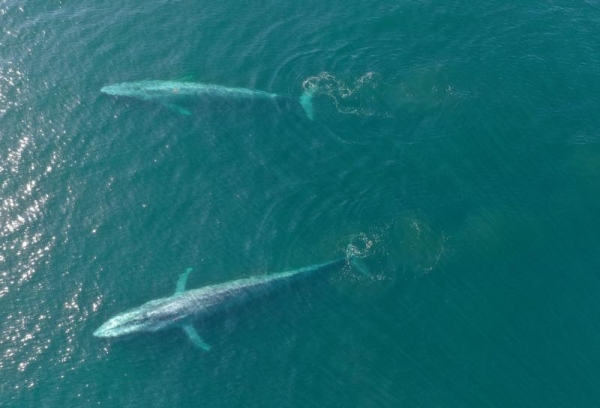Real-time shifts in marine ecosystems and species demand “climate-ready” fisheries. This new research will inform fisheries management.
Forecasts can now predict the location and onset of marine heatwaves that can disrupt marine ecosystems. Scientists say the next step is to forecast what happens to top predators that inhabit those ecosystems.
New research published in Nature Communications finds that the effects on marine predators such as sharks, tuna, and mammals vary widely and can redistribute species across international boundaries. Scientists predicted these shifts using species distribution models that account for changes in temperature and other environmental conditions.
“The goal is to provide forward-looking tools to help managers think ahead about how species could redistribute during heatwaves and how they may need to proactively adjust regulations to account for these shifts,” said Heather Welch, an affiliate researcher at NOAA Fisheries’ Southwest Fisheries Science Center, a project scientist at UC Santa Cruz and lead author of the new research. “Predators often support important commercial fisheries, so it’s important to understand how they respond to changes in their surroundings.”
Read more at NOAA Fisheries
Image: Two tagged blue whales swim in Monterey Bay in 2016. NOAA Fisheries permit 16111. (Credit: Elliott Hazen/NOAA Fisheries)


